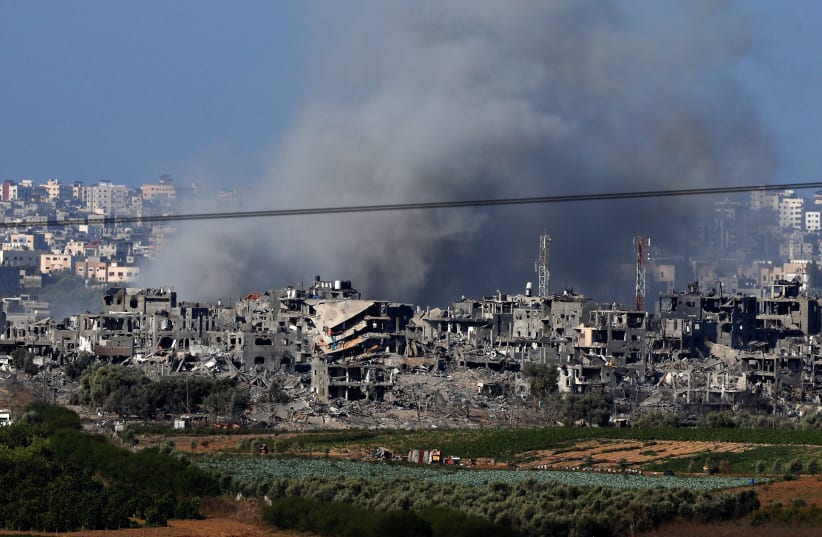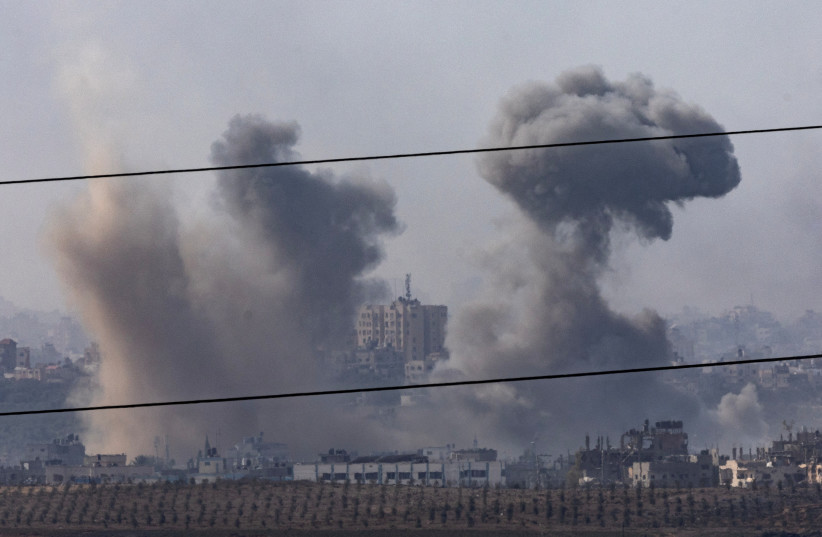A "public health catastrophe" is imminent in Gaza, the World Health Organization (WHO) said on Tuesday, as the United Nations Secretary General Antonio Guterres warned that the amount of humanitarian aid entering the enclave is inadequate.
The US is pushing to increase assistance to Gaza to up 100 trucks a day, Secretary of State Antony Blinken told the US Senate Committee on Appropriations, but he added that there is a limit to the capacity of Palestinians on the ground to distribute that aid.
The flow of Israeli water into Gaza, what had amounted to 28% of its supply, up from 14%, according to the UN, stopped on Monday.
“This follows several days of gradual improvement of water supply in central and southern Gaza following the distribution of limited amounts of fuel available in Gaza to key water facilities, enabling their reactivation,” the Office for the Coordination of Humanitarian Affairs for the Palestinian territories (OCHA) said.
"Overall, out of the 143 trucks that have entered Gaza since 21 October, at least 15 carried drinking water (jerrycans and bottles), water tanks, water purification equipment, and hygiene kits,” OCHA stated.
At issue for the 2.3 million Palestinians in Gaza is both IDF aerial strikes and failed Palestinian rocket launches as well as severe Israeli restorations on goods, fuel, water, and electricity into the enclave until such time as Hamas releases the over 239 hostages it is holding.
Palestinians flee IDF bombings in Gaza
Some 1.4 million Palestinians have fled their homes to escape the bombings since the start of the Gaza war on October 7, when Hamas infiltrated southern Israel killing over 1,400 people. Hamas asserts that over 8,300 Palestinians have been killed in Gaza from war related violence
Israel’s National Security Adviser Tzachi Hanegbi told reporter that fuel — a necessary commodity for water purification and electricity production — was still banned from entering the Strip due to fears that Hamas would divert it for military purposes.
Blinken said that “Hamas has its own stockpile of fuel. If it cared a whit about the people of Gaza, it would make sure itself that it used that fuel to have the hospitals be able to operate and have the incubators stay turn on, but of course it doesn’t.”
“We have an obligation to do what ever we can, if Hamas is not going to do it, to look out for the people in Gaza .we are working on a mechanism that can get fuel to where it’s needed,” Blinken said.
Hanegbi said that it would be better if Palestinians who needed medical care were treated in Egypt, as he proposed the possibility of setting up field hospitals along the Egyptian-Gaza border.
UN Secretary-General Antonio Guterres called for a humanitarian ceasefire explaining that the level of aid in Gaza was “inadequate’ to meet the needs of its 2.3 million residents.
“I remain deeply concerned about the risk of a dangerous escalation beyond Gaza and urge all leaders to exercise utmost restraint to avoid a wider conflagration,” Guterres said.
WHO spokesperson Christian Lindmeier Lindmeier told reporters “an imminent public health catastrophe that looms with the mass displacement, the overcrowding, the damage to water and sanitation infrastructure.”
At the UN Security Council in New York on Monday UN officials briefed the 15-member body about the humanitarian crisis in Gaza, particularly as it impacted children and minors under 18.
UNICEF Executive Director Catherine Russell told the UNSC that over 3,400 children had been killed and over 6,300 injured.
“More than 420 children are being killed or injured in Gaza every day – a number which should shake each of us to our core,” Russell said.
Some 34 attacks have been reported against Gaza health facilities, including 21 hospitals, Russell said. Some 12 of Gaza’s 35 hospitals, “can no longer function,” she explained.
At least 221 schools and more than 177,000 housing units have been damaged or destroyed and the clean water is almost gone, Russell said.
“We estimate that 55% of the water supply infrastructure requires repair or rehabilitation. Only one desalination plant is operating at just 5% capacity, while all six of Gaza’s water-waste treatment plants are now non-operational due to a lack of fuel or power,” Russell said.
“The lack of clean water and safe sanitation is on the verge of becoming a catastrophe. Unless access to clean water is urgently restored, more civilians, including children, will fall ill or die from dehydration or waterborne diseases,” she said.

